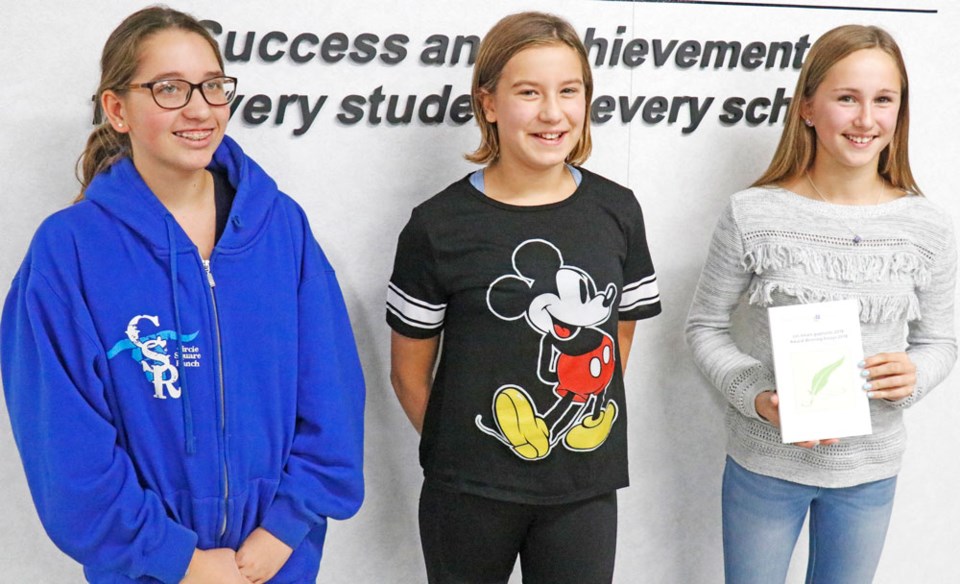The board members for the South East Cornerstone Public School division were provided with a one-hour presentation of facts and examples of student achievement successes when they met in the school division’s conference room in Weyburn on October 10.
Lynn Little, director of education for the division, provided the first portion of the presentation that also included the facts and figures. Rocanville School educators Nathan Bromm and Michael Gowan then took over, but only after a trio of students provided proof of the high level outputs by reading samples of their personal narrative essays they had composed last school year as Grade 6 and 7 students.
The student presentations came from two Westview School students from Estevan, Kiarra Biette and Alex Spencer, and Grace Pederson from Lyndale School in Oungre.
Their stories dealt with a pet dog (Alex), a memorable letter (Kiarra) and distant memories (Grace).
It was pointed out that when the division embraced the Turning Points program that centres on character awareness, resilience and literacy among students through written expression, the results were positive.
The program kicks in at the Grade 6 level and continues through to Grade 12.It empowers students to reflect upon their values, and the opportunity to expand literary skills, Little said.
The two Rocanville educators explained how the lessons were delivered and essays allocated. Bromm and Gowan noted how the judging was carried out and how the program is expanding within the division.
They said the 270 students at the school had answered the challenge and 18 teachers got very involved in the process in its first year.
Little spoke of how Cornerstone weighed in above average on 18 of 20 marked provincial programs in various subjects, not only in writing and for classrooms, but also on drama, debate and music stages and on athletic fields.
She revealed the above average success rate of Cornerstone students in the Grade 1-3 reading levels, and a repeat of those success rates from Grades 4-8. Writing skills of Cornerstone students at the Grade 9 level, as an example, were measured independently at over 73 per cent compared with the provincial average of just under 68 per cent.
She also pointed out the success rate of the early years evaluation program that helps ensure more success once a student enters kindergarten. She noted the marked improvements from the fall to spring assessments, indicating how well the program works with Cornerstone’s professional teams of educators, consultants, speech pathologists and English as Another Language instructors, among others.
Bromm and Gowan provided examples of student achievement at high school levels, taken from their own school’s registered students and how both students and teachers responded to various challenges by creating a positive environment for all that allowed the student to ultimately reach their targeted goals.
“It’s about student engagement and then family engagement along with the teacher,” said Gowan.
“We try to build a comfort level among the student body,” said Bromm, pointing to the fact that senior students are often partnered with the youngest students for various activities and events.
“A Grade 12 student can be very intimidating to a kindergarten student, so we must address that.”
“To be honest with you, some of the projects we have are a work in progress,” said Gowan. “But the results, so far, are encouraging as we arrange student, teacher, parent conferences.”
Bromm went on to say that processes, strategies and intervention opportunities along with the credit systems are outlined to students so they can make clear decisions.
He added they track credits from Grades 10-12 and how students can even gain credits from their activities outside the school and how parents need to be aware of the course paths their children are taking and the options that are open to them for ultimate achievement, such as returning to school, recovering credits or finishing a course through the division’s online school, Cyberstone.
The duo, along with Little, fielded a number of questions from the trustees following the presentation. The questions generally dealt with attendances, communications and program offerings.
The Rocanville team as well as the student presenters were thanked by vice-chairwoman Carol Flynn who was chairing the meeting. Chairwoman Audrey Trombley was absent due to family needs.



